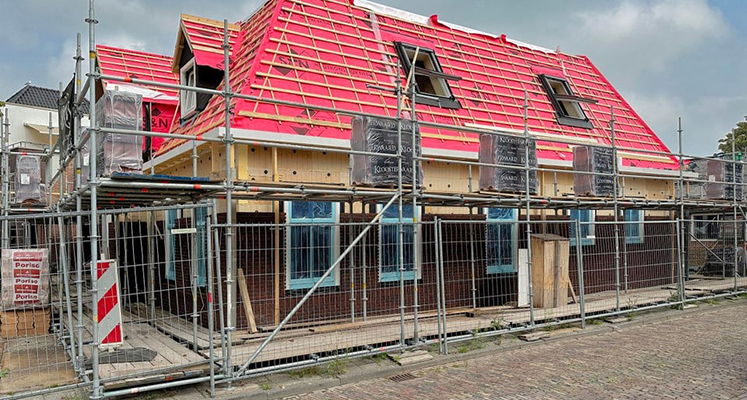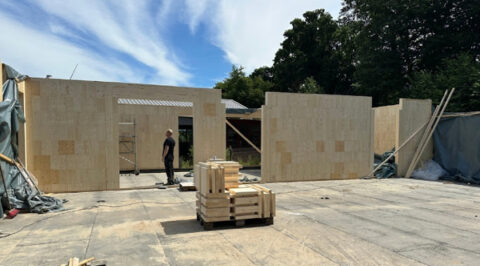Both Bouwend Nederland and the smaller contractors, united in AFNL, are cautiously positive about the construction ambitions in the outline agreement of the forming parties. "It offers good starting points for meeting the problems of social challenges, such as housing, sustainability, accessibility and speeding up procedures. However, it does come down to how this will be implemented."
Bouwend Nederland says that the outline agreement of the forming parties contains "fine ambitions, but it comes down to good implementation." For example, the industry association says it is pleased that reducing the housing shortage is a top priority, as is the agreement's focus on mobility and infrastructure and tackling grid congestion.
"The agreement of the four parties addresses almost all major societal challenges for which the construction and infrastructure sector is building the solutions, such as accessibility, housing construction and energy transition. It now comes down to execution power and implementation certainty. We hope that in the further elaboration clear measures will be taken to actually be able to get the goals and ambitions done."
"It is a good thing that there is plenty of attention to the construction of new housing and the reallocation of existing buildings, with these four parties also betting on the principle of 'street addition' and reallocation/reallocation of office and industrial buildings, speeding up procedures and stating that every region counts. All this under once again a coordinating minister, who directs spatial planning and where to build," the AFNL wrote in a press statement.
VSufficient inflowrealize
Realizing the construction task, sustainability and the energy transition are crucial, but cannot be realized if there are not enough skilled workers. The Contractors' Federation agrees with the four parties that there must be more control over labor migration, but as the Netherlands we must be able to continue to attract skilled workers and technical people in order to realize the necessary housing construction, sustainability, infrastructure and energy transition. The better linkage of vocational education to the labor market announced in this context is very welcome. Crucial in this respect is that a wide range of construction (related) MBO courses with sufficient regional distribution is maintained and created, where young people, but also, for example, those who come from abroad and foreign employees are trained, retrained or retrained. Skilled workers can also be trained with partial certificates.
Bouwend Nederland and the AFNL say they are ready to help with further elaboration. "With only the intentions in this outline agreement, without adequate implementation power and financing linked to it, we will not get there. Then the sun may be shining, but house seekers and road users will be sitting in the shade."
Good intentions
The umbrella organization for housing associations Aedes believes that the need to address the housing crisis is recognized in the outline agreement. The plans build on policies already in place and include good intentions to build additional housing, the umbrella association says.
Aedes welcomes the fact that an average of 30 percent of new homes are to be social housing, according to the parties' plans. More land will also become available, obstacles will be removed, procedures accelerated and grid congestion addressed, Aedes says. "Measures that are all badly needed."
Instead, the Woonbond, the tenants' interest group, said it sees far too little ambition in the coalition agreement to address the housing crisis.












